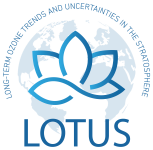Speaker
Dr
Michael Taylor
(University of Reading)
Description
With the rationalisation of climate data sets brokered from data providers through portals like the C3S Climate Data Store (CDS) and NASA GES-DISC, a key element of quality assurance is the provision of traceable uncertainty information. In important climate data records like total column ozone and ozone vertical profile data sets, ideally one would like uncertainties to be traceable back to a community defined reference and derive traceable uncertainties from the lowest level of data (e.g. raw detector counts) through to the final retrieval which may be gridded at different spatial and time scales. Given that not all products have uncertainties developed to this level, information is still needed in terms of data quality and to help assess this in a structured way, the C3S Evaluation and Quality Control of Observations (EQCO) Project has developed a framework to collect and rank available quality information and to perform an independent validation. In the case of total ozone, and also in most other essential climate variables considered in EQCO, a common gap is the lack of quantitative uncertainties propagated from Level-0 data. The Horizon 2020 project FIDUCEO has developed a measurement equation approach to recalibrate in-flight satellite remote sensing data and to demonstrate how to propagate uncertainties at the radiance level through optimal estimation algorithms to retrieved products at Level-2+ including sea surface temperature and aerosol optical depth. We present an example of the FIDUCEO method and how it can be applied to ozone and explain how harmonisation rather than homogenisation of sensor series data is required to ensure the fidelity and stability of climate data records.
Primary author
Dr
Michael Taylor
(University of Reading)
Co-authors
Prof.
Christopher J. Merchant
(University of Reading)
Dr
Jonathan P. D. Mittaz
(University of Reading)

